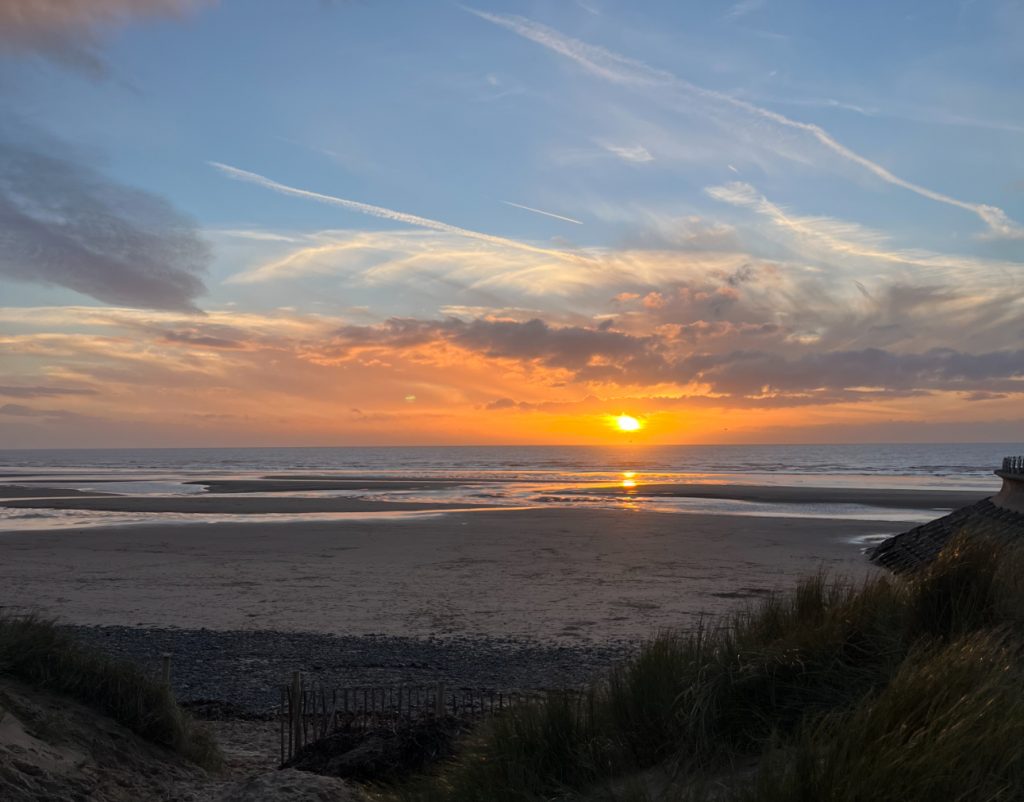From beginning his university career studying Marine Biology and armed with a passion for all things ocean and wildlife, read on to find out more about Sam’s journey through the University of Salford and how he went on to study a Master’s degree in Environmental Studies.

Why did you choose to study at Salford?
I chose to study at Salford for numerous reasons. Firstly, the modern campus really stood out to me. The new SEE building is a massive highlight – a brand new building with great facilities and working spaces. The whole campus has a contemporary feel, which makes studying here a great experience in terms of both resources and environment. Another major factor for me was the location. The university is situated right next to Manchester City Centre, which is fantastic for both academic and social reasons. Lastly, the Peel Park Accommodation was also a key consideration. It’s modern, well-maintained, and close to both the campus and the city, which made it a perfect place to live as a student.
What made you want to study your course?
I’ve always had a strong passion for marine biology, which stems from both my love for the ocean and my interest in the diverse marine life that inhabits it. SCUBA diving has been a huge part of my life, and it has given me a deeper appreciation for marine ecosystems. The opportunity to explore underwater environments, observe marine species in their natural habitats, and learn more about their conservation has been a driving force behind my desire to study marine biology. What really attracted me to the course at Salford, though, is the incredible hands-on experience it offers. The chance to go on multiple field trips as part of the program is something that really excites me. Not only do we have the opportunity to visit stunning locations around the UK, like Millport in Scotland and Keswick in the Lake District, but there’s also a once-in-a-lifetime opportunity to spend two weeks in Honduras. This international field trip is a great way to gain real-world experience in tropical marine environments and apply what we’ve learned in the classroom to actual research in the field.
Tell us a bit about your course. How would you explain your course to someone who knows nothing about it?
Marine biology is the study of life in the ocean and other aquatic environments. If I had to explain it to someone who doesn’t know much about it, I would say that it’s about understanding the variety of marine species—everything from microscopic plankton to the largest whales—and how they interact with each other and their environment.
One of the key areas we study is taxonomy, which is all about classifying marine species based on their characteristics and evolutionary relationships. It’s fascinating because there’s so much diversity in the ocean, and by studying taxonomy, we can better understand how different species fit into the bigger picture of marine ecosystems.
Another important part of the course is looking at conservation issues. The oceans face a lot of environmental challenges, such as pollution, overfishing, and climate change, which all affect marine life. We study how these issues impact marine species and ecosystems and explore ways to protect and preserve them for future generations.
We also delve into fisheries science, which looks at the management of fish populations. It’s about understanding how to balance the needs of the fishing industry with sustainable practices that ensure fish populations remain healthy and abundant.
Finally, marine policies and management are a key part of the course. We learn about the laws and regulations that govern the use of marine resources, from fishing to marine protected areas. Understanding these policies is crucial for advocating for the health of marine environments and species.
How did you learn on the course? (Were there practicals/fieldwork/projects/guest speakers?)
In marine biology, learning is a mix of practical, hands-on experience and traditional academic study, which makes it really engaging. We do a lot of lab practicals, where we get to work with marine samples, analyse data, and develop our scientific skills. Fieldwork is another huge part of the course. We have multiple opportunities to get out of the classroom and explore marine environments firsthand. Whether it’s on field trips around the UK or even further afield, like the two-week trip to Honduras, we get to apply what we’ve learned in the classroom to actual field research. In addition to lab and fieldwork, we also do both group and individual projects. These projects help us develop skills in research, problem-solving, and communication. For example, we might be asked to work on a group presentation about a specific marine conservation issue, or undertake an individual project where we research a particular species or ecosystem.
Have you done or will you do a placement?
I did a placement year, in which I worked at a net zero consultancy in Liverpool, as a data analyst. It was great to get interesting insights in to the world of carbon emissions, whilst getting experience working in an office team, working together to meet deadlines and communicating effectively with stakeholders of different companies.
Having already graduated from your BSc course, tell us a bit about your career journey since you graduated from Salford.
Since graduating, I was lucky enough to receive a WP scholarship from the university, which meant I did not need to pay course fees to do a masters. My supervisor helped me massively with this, explaining a project idea they had for the masters.
What is your favourite thing about being a University of Salford student?
My favourite thing about being a University of Salford student is the multitude of social output opportunites I have on a daily basis. On campus, there are lots of different clubs and societies you can join, and outside of campus, the walk to Manchester City Centre being only 15 minutes leaves so much to do.